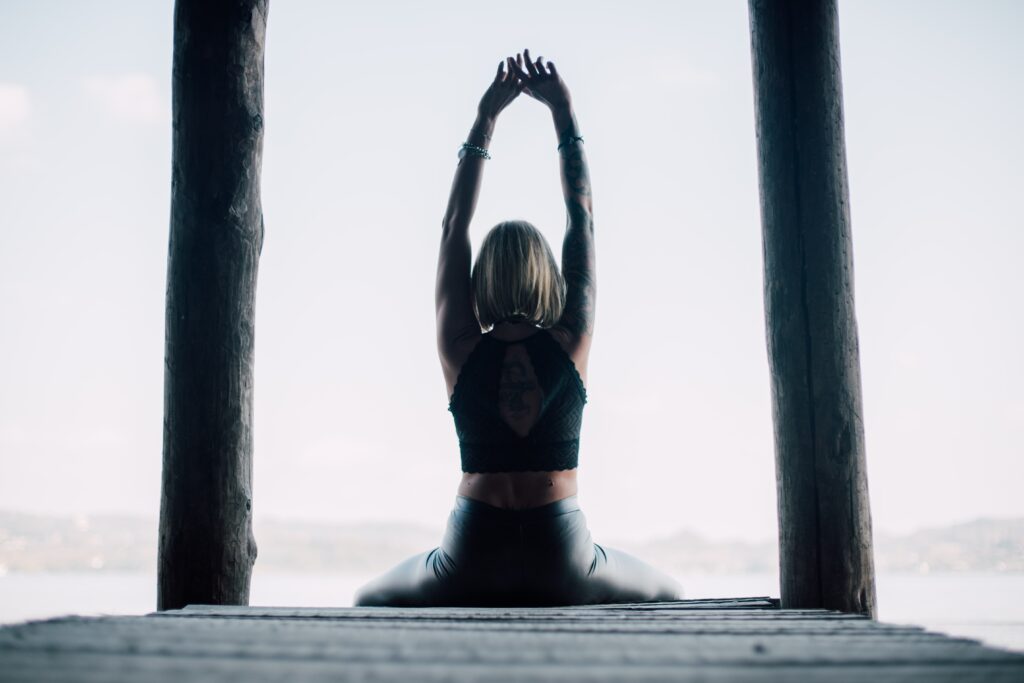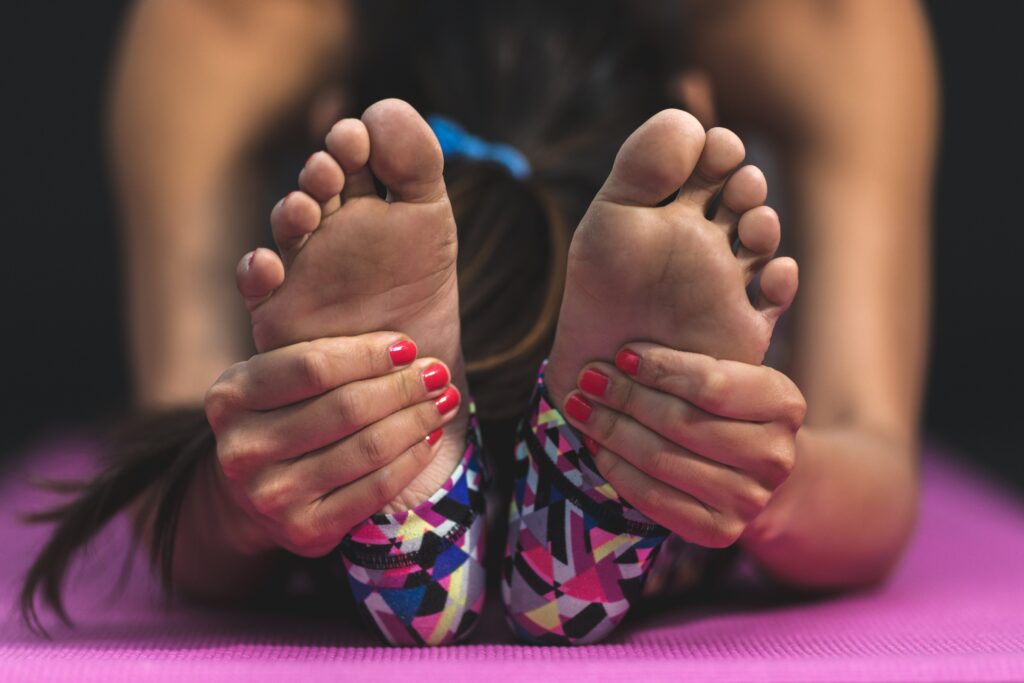
How to Use CBD Sports Cream for Recovery
Are you tired of those post-workout sore muscles slowing you down? We get it, pushing your limits can leave you feeling like you’ve been hit

Self-love can sometimes feel like a “pie in the sky” idea –easy to contemplate but unlikely to realize. Many of us intertwine love with appreciation, making the idea of self-love easier to grasp when we consider it as a way to appreciate one’s self.
By definition, in order to appreciate something or someone, one must have a full understanding of a situation, as well as recognize the good qualities of a person or thing. To further simplify, to appreciate ourselves means we must understand ourselves and find the good in ourselves, two difficult things for many of us to do.
So how do we begin to recognize our good qualities and better care for ourselves?
One of the best ways we practice self-love is to first understand ourselves better so we can give ourselves what we need to stay healthy and balanced. Most of us have been indoctrinated into a theory that society supports, or maybe even pushes, that tells us “selflessness” is love.
Being selfish has often been portrayed as a negative thing, especially when acted upon by women or parents (as it relates to their children). However, with selflessness being at one end of the spectrum and selfishness being at the other, the most balanced of humans fall somewhere in the middle.
If we truly understand what we need to have a happy and healthy life (mentally, physically, emotionally, spiritually, and financially) and are taught to consider this as an important part of health from a young age, we can learn to anticipate our needs and nurture our balance from the start.
We often (as a society) manipulate children into doing what we want them to do, versus what is correct for their personal internal guidance system and this is the beginning of a life where people put others first, letting their own wants and needs go by the wayside in the name of their selflessness.
In this way, so many of us become disconnected from our true selves, ultimately leading to adults who have difficulty practicing self-love and self-care and ultimately, finding balance.
Of course, the opposite is also true. There are people who never learn to consider others and are only concerned with their own wants and needs. They are programmed from an early age to be on the complete selfishness side of the spectrum and create an entirely different set of imbalances in their life with their selfishness.
These people need to find the center of the spectrum by learning about love for others and love for society. They need to focus more on outward love and the lessons that teach humans.
The good news is, if you are not one of the lucky ones that were taught the delicate balance of perfectly directing love inward (to yourself) and outward (to others), you are not alone. No matter which way you have been taught or programmed, you can learn and you can change.
Specifically, learning self-love and self-care starts with understanding ourselves better and then honoring what we learn about ourselves by way of new self-care routines. It doesn’t have to be a life-changing routine that takes hours or even an hour a day. It doesn’t have to be a week-long retreat (but they sure can be helpful) or converting to a new religion.
It doesn’t have to be dramatic or quick. It can be as simple as slow, subtle changes that are incorporated into your life gradually and begin to make meaningful changes over time.
Connecting to ourselves and understanding what is helping us and what is hurting us is a wonderful first step. This is especially true for women and caregivers. So many of us are so busy worrying about everyone else’s needs, that we neglect our own and become so accustomed to downgrading our needs, giving them less priority over others’, and running ourselves in circles for the sake of everyone else’s.
It is important to check in with yourself and start practicing self-awareness so you can prioritize yourselves physically, emotionally, mentally, and spiritually.
One way to do this is to notice how you feel after certain activities or certain blocks of time that you devote to various people or things in your life. Maybe there is a friend who you often spend time with and you notice each time you leave lunch with this person you feel fulfilled and uplifted. On the contrary, maybe you feel free drained and depleted.
How about your work?
Do you feel energetic and passionate at work or resentful and discouraged?
Do you feel appreciated and in your dharma (or your calling)?
Or do you feel like you are doing mundane, unimportant work?
Obviously, work (or any relationship) won’t always be perfect, but if you are always feeling negative and rarely feeling positive, this should be a fair indication that something is off balance and not serving your highest needs.
Notice the same kind of things after…
Take it a step further and notice how you feel after different kinds of TV shows or movies. Do you feel the same after watching a comedy as you do a love story? How about the news versus a reel of puppies and kittens? Which of these television programs or sets of videos leave you feeling happy, light, and secure? Which leave you feeling discontent, anxious or fearful?
It is very important to spend time nurturing our balance and positivity. The media does a decent job of keeping our fear and anxiety front and center.
This topic especially can help you grow mentally, spiritually, and emotionally. This topic deserves another blog just in itself, and if it speaks to you, I strongly advise doing further research on mindfulness techniques.
All of these activities and variables have a place in life and are necessary, but sometimes we don’t check in with ourselves or notice what (or who) is helping us or harming us. Sometimes we are just on auto-pilot and we fall into toxic relationships or habits that suck our energy versus give us energy.
A great way to evaluate this is to take note of when you feel tightness in your muscles, chest, neck, or just body in general. Do you feel yourself tensing or stressed during the day, when around certain people or doing certain things? If so, what caused this reaction in your body? Was it an interaction with a specific person, a certain task you completed, or a conversation you had?
Also, take note of when you feel more at ease during your day. When you have a burst of excitement or energy, what caused this? Was it an interaction with a person, a chore completed, or a thought you had? This could be a clue about a passion you should consider nurturing or a person you should consider befriending or mirroring.
We need more of the things that lift us up and less of the things that drag us down. Starting to notice how different types of activities and the time we spend with various people affect us, positively or negatively, can help us make choices that more properly align with what is best for ourselves and our mental health self-care.

Coming back to the idea of appreciation for ourselves, or practicing self-love for ourselves, we come back to the idea of finding the good in ourselves: the second half of appreciation. Once we have gotten better at understanding our true wants and needs, we need to allow ourselves the “selfishness” to put our priorities in the highest of positions.
Everyone has heard the saying “secure your own oxygen mask first” as a justification for self-care necessity. If we are imbalanced and haven’t taken proper care of ourselves, it will be more difficult to take care of others.
However, this saying is still another way to prioritize our own self-care practices for the sake of others. Moving a step beyond this, forgetting others, it must be understood that we will never find true balance without tending to ourselves first.
We deserve to have our needs met. We deserve happiness and fulfillment. We deserve to find joy in life. We deserve to enjoy the feeling of well-being deep in our core. We deserve to put all this above all else! It is your basic human right to do so.
Namaste has become a popular term in the West, mostly driven by the Western Yoga community. Namaste has different translations, but “The God in me bows to the God in you” is my personal favorite. This idea that we are all divine and honoring that divine in ourselves and others resonates so perfectly when considering self-love and self-care.
It isn’t always easy to see the good in other humans. Consider that even the person you dislike the most in the world (think of a celebrity, a politician, a coworker, or just a neighbor who drives you nuts). It takes a very strong spiritual practice to find the God or divine in that person, doesn’t it?
You might think this person is filled with hate or anger or whatever attributes you dislike about them. In fact, this person might be incredibly imbalanced. The term Namaste acknowledges this person has a spark of the divine in him/her, just like you do. However, from your vantage point, their imbalance is clouding the view.
I like to think of the divine in us as our core selves and our core selves are driving a vehicle for this lifetime (our body). It’s easy to see the core when the windshield is clear and it’s easy to shine the light from our core outward when the windshield is clean.
However, it is difficult to shine a bright light when the windshield is full of mud or to see what’s behind the muddy windshield when looking in.
Stress is like mud, and unless we constantly take measures to clean the windshield (self-care), very few will be able to see our inner light shine. Our goodness, our godliness, will be muddied and hidden. Our true selves are never visible to the outside world and hardly known to ourselves even because of all the stress (mud) caked on top.
So, if we know our inner light is our divine and the only thing stopping us from uncovering it is the lack of self-care, why don’t we all stop this craziness and prioritize ourselves?
Why do we constantly put ourselves last and everyone else first? Why do the kids get to their sports and health checkups, the dog gets groomed, the house gets cleaned, and laundry gets folded before Mom finds time to sit and read a book alone in the house?
Why do the kids need the newest toy or the next size up in their favorite brand name shoes while Mom can’t find the money to go to the spa or treat herself to a new haircut?
Certainly, part of the issue is society and this idea of “selflessness” being a lack of love instead of a showing of love. In addition, society doesn’t stack the cards in our favor. The cards are clearly stacked against us, with corporate profit being more important than individual health, producing toxic food, water, and air.
Many people are stressed and feel guilty about what is expected of them and this picture of the perfect American family. Many people think their kids having it all will make them happy, when in fact strife, boredom, lack, and aversion can actually have a profound place in a child’s healthy life and be character builders. Many people are just unaware because no one taught them to think differently or even question these things.
I want you to remember that your core is the divine. Your core is peace, joy, and happiness. Your core, your true self, knows nothing other than godliness.
If you are in any other state, that is not you. It is the pressures of the outside world clouding your vision and knocking you off balance. These are indicators that some self-love and self-care are needed, an indication that you need to clean that windshield.
Following our joy and looking to nurture peace is an excellent practice that will pay dividends in the long run. Life will not always be perfect, and stressors will come up undoubtedly, but the imperfections are signals that something needs to be looked at. They are an opportunity to learn about yourself and what you need to be healthy and balanced.
Once you make a habit of looking, you will be much more inclined to correct the situation and rebalance yourself. In this way, self-love and self-care can be the most rewarding type of love possible.
Cassie has a background in manufacturing operations, healthcare operations, nutrition, and health coaching. This results in an unparalleled understanding of how each part of production affects the whole product. Cassie is a true advocate for healthy and holistic living, preventive lifestyles, and clean food/ingredients

Are you tired of those post-workout sore muscles slowing you down? We get it, pushing your limits can leave you feeling like you’ve been hit

In an era where personal wellness is becoming a priority for people, hemp CBD supplements have emerged as trusted allies in their care routines. As
*The statements made regarding these products have not been evaluated by the Food and Drug Administration. The efficacy of these products has not been confirmed by FDA-approved research. These products are not intended to diagnose, treat, cure or prevent any disease. All information presented here is not meant as a substitute for or alternative to information from health care practitioners. Please consult your health care professional about potential interactions or other possible complications before using any product. The Federal Food, Drug, and Cosmetic Act requires this notice. By using this site, you agree to follow the Privacy Policy and all Terms and Conditions printed on this site.